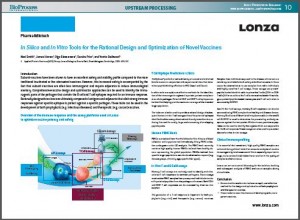 Subunit vaccines have been shown to have an excellent safety and stability profile compared to the more traditional inactivated or live attenuated vaccines. However, this increased safety is accompanied by the fact that subunit vaccines are often less immunogenic and require adjuvants to induce immunological memory. Comprehensive vaccine design and optimisation approaches can be used to identify the immunogenic parts of the pathogen that contain the B cell and T cell epitopes required for an immune response. Rationally designed vaccines are ultimately composed of antigens and adjuvants that elicit strong immune responses against specific epitopes to protect against a specific pathogen. These tools can be used in the development of both prophylactic (e.g., infectious diseases) and therapeutic (e.g., cancer) vaccines.
Subunit vaccines have been shown to have an excellent safety and stability profile compared to the more traditional inactivated or live attenuated vaccines. However, this increased safety is accompanied by the fact that subunit vaccines are often less immunogenic and require adjuvants to induce immunological memory. Comprehensive vaccine design and optimisation approaches can be used to identify the immunogenic parts of the pathogen that contain the B cell and T cell epitopes required for an immune response. Rationally designed vaccines are ultimately composed of antigens and adjuvants that elicit strong immune responses against specific epitopes to protect against a specific pathogen. These tools can be used in the development of both prophylactic (e.g., infectious diseases) and therapeutic (e.g., cancer) vaccines.
Saturday October 04, 2025
